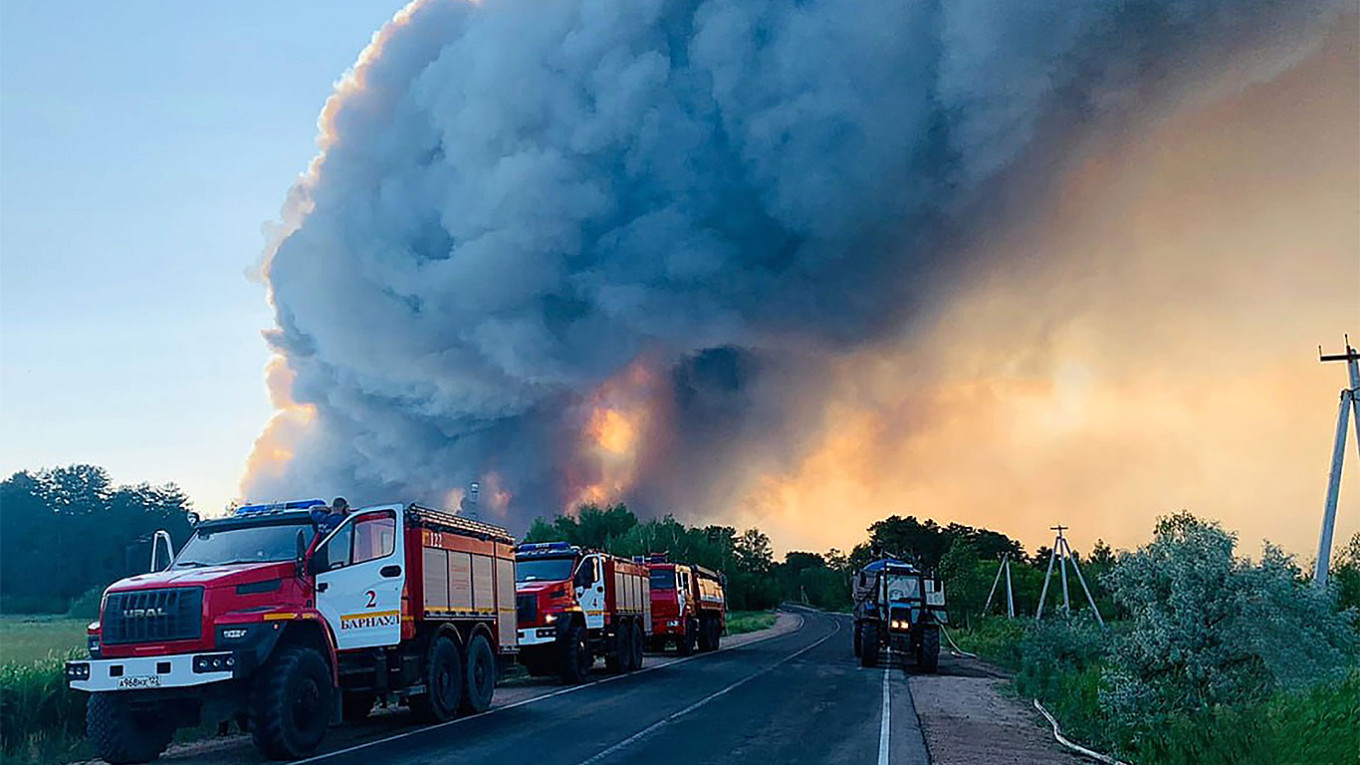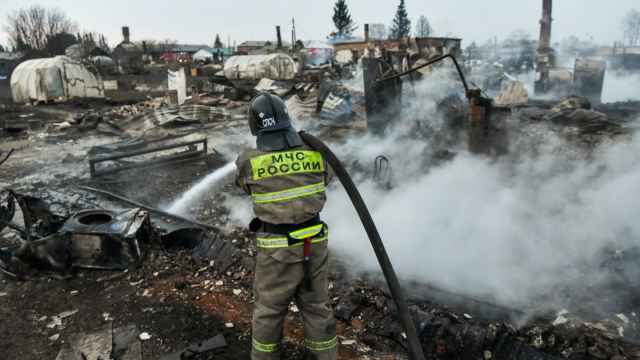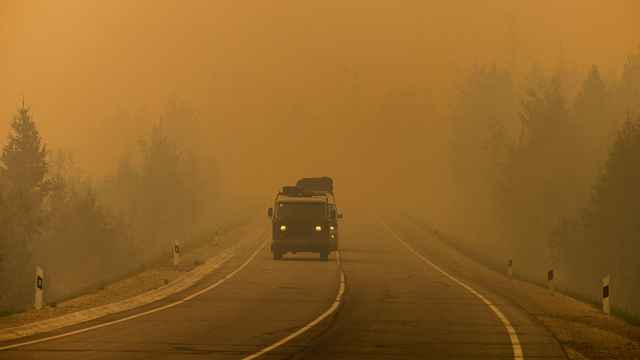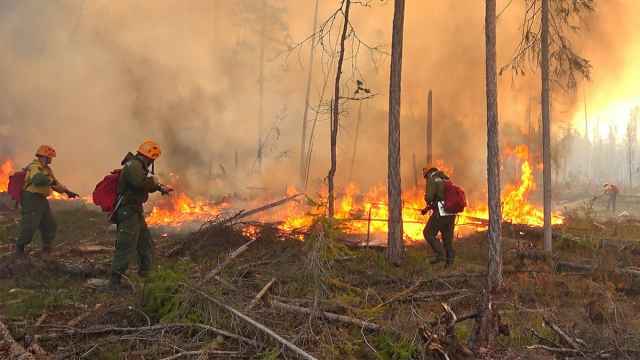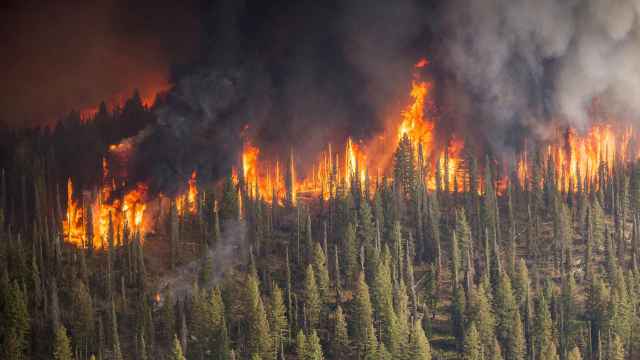Siberia’s boreal forests, long considered to be a carbon “sink,” may soon become a net source of carbon emissions, as wildfires causing forest loss and degradation have grown increasingly more intense in recent decades, researchers at the Russian Academy of Sciences said Thursday.
Citing a recent study, the researchers said carbon emissions from high-intensity fires — those that occur when weather conditions are hot, dry, and windy — have more than doubled since 2000.
Likewise, the study estimates that Siberian wildfires alone are now responsible for around 5–20% of Russia’s total greenhouse gas emissions.
Evgeny Ponomarev, one of the authors of the study and a senior research fellow at the Sukachev Institute of Forest in Krasnoyarsk, noted that Siberia has witnessed an uptick in both the number of wildfires and in the total land burned annually.
“We can expect that the upward trend of high-intensity burning will continue, leading to... an increase of direct carbon emissions from fires into the atmosphere,” Ponomarev said.
The growing intensity of wildfires has the potential to shift parts of Siberia's taiga forests “from being a carbon ‘sink’ to a carbon source,” he added, referring to the forests’ ability to absorb and store carbon from the atmosphere.
Grigory Kuksin, an independent wildfire prevention expert, told The Moscow Times that the recent study’s findings match what he has observed in his own work.
“There's not much to argue about here. Fires in general, including high-intensity ones, have indeed been on the rise. And yes, if things continue as they are, forests are likely to become a source of emissions,” he said.
But Kuksin also emphasized the growing number of wildfires in Russia’s Arctic, as well as the effects of black carbon emissions.
Black carbon, commonly known as soot, is formed by the incomplete burning of wood and fossil fuels. Though not a greenhouse gas, black carbon contributes to global heating by absorbing energy from the Sun, while also reducing the Earth's surface reflectivity when it covers snow and ice.
Kuksin said fires in forest-steppe and steppe zones are becoming more intense and widespread, creating large amounts of black carbon in the process.
A Message from The Moscow Times:
Dear readers,
We are facing unprecedented challenges. Russia's Prosecutor General's Office has designated The Moscow Times as an "undesirable" organization, criminalizing our work and putting our staff at risk of prosecution. This follows our earlier unjust labeling as a "foreign agent."
These actions are direct attempts to silence independent journalism in Russia. The authorities claim our work "discredits the decisions of the Russian leadership." We see things differently: we strive to provide accurate, unbiased reporting on Russia.
We, the journalists of The Moscow Times, refuse to be silenced. But to continue our work, we need your help.
Your support, no matter how small, makes a world of difference. If you can, please support us monthly starting from just $2. It's quick to set up, and every contribution makes a significant impact.
By supporting The Moscow Times, you're defending open, independent journalism in the face of repression. Thank you for standing with us.
Remind me later.


